RAISING VEGAN BABIES AND CHILDREN
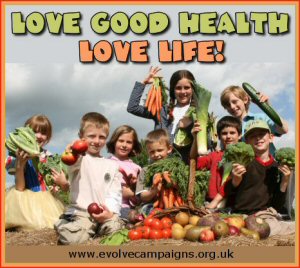 If you have made the choice to centre you and your baby's diet around plant-based whole foods, then congratulations, you have chosen an educational and life transforming path. It has been shown that an optimal diet for people is one that is centred on this. If you do it right you can expect many benefits. To get the most from this diet, be sure your baby gets plenty of calories from a wide variety of whole food sources. This is the best way to ensure sufficient proteins as well as other nutrients.
If you have made the choice to centre you and your baby's diet around plant-based whole foods, then congratulations, you have chosen an educational and life transforming path. It has been shown that an optimal diet for people is one that is centred on this. If you do it right you can expect many benefits. To get the most from this diet, be sure your baby gets plenty of calories from a wide variety of whole food sources. This is the best way to ensure sufficient proteins as well as other nutrients.
Is a vegan diet healthy for an active, growing child? Absolutely.
Children raised on a vegan diet eat more fruits and vegetables than their meat-eating counterparts. They are sick less often, and don't have as many food allergies. If you choose carefully, even vegan junk food can be healthier than regular junk food as it often contains fruit juice instead of sugar and whole wheat flour instead of white flour.
Is a Vegan Diet During Pregnancy Safe?
During pregnancy it is vital to maintain a healthy diet for the safety of the
developing fetus. Pregnant vegans have a tremendous advantage since their diet is
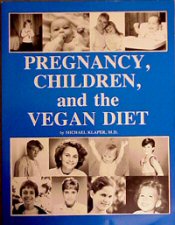 naturally high in the vitamins and minerals the baby needs. As long as her diet is varied and incorporates a reliable source of B12, a vegan woman can be reasonably sure she is meeting her daily requirements. A visit to a registered dietician who specialises in vegan diets can help ease her mind if she is unsure of her particular diet. Also read Pregnancy, Children, and the Vegan Diet by Dr. Michael Klaper, the bible for pregnant vegans.
naturally high in the vitamins and minerals the baby needs. As long as her diet is varied and incorporates a reliable source of B12, a vegan woman can be reasonably sure she is meeting her daily requirements. A visit to a registered dietician who specialises in vegan diets can help ease her mind if she is unsure of her particular diet. Also read Pregnancy, Children, and the Vegan Diet by Dr. Michael Klaper, the bible for pregnant vegans.
It is important to eat a varied diet during pregnancy to ensure an
adequate supply of many vitamins and minerals. Below is a list of some food choices that are healthy and rich in the nutrients a woman needs during pregnancy. These items are good choices even for non-vegan women.
Breakfast:
- Whole grain cereal with soya milk
- Whole grain pancakes with pure maple syrup
- Fruit smoothies
- Oatmeal with dried fruit or apples and cinnamon
- Whole wheat toast with all fruit preserves
- Scrambled tofu with grilled tomatoes and mushrooms
Lunch:
- Romaine lettuce salad with chopped vegetables and low fat dressing
- Beanburger and salad in wholewheat bun
- Veggie sandwich on whole grain bread with avocado, lettuce, tomato, and onions.
- Baked potato with broccoli and tofu sour cream (non-dairy)
- Falafel sandwich with hummus or tahini
- Split-pea soup
Dinner:
- Whole wheat pasta with tomato sauce
- Baked sweet potatoes
- Vegetable pizza with no cheese
- Vegetable stir fry with brown rice
- Potato and lentil hot pot
- Vegetable stew
- Spinach and mushroom lasagna
Snacks:
- Popcorn with nutritional yeast
- Dried fruits
- Grapes
- Fruit juice with sweetened cookies
- Nuts
- Trail mix
Feeding Vegan Babies
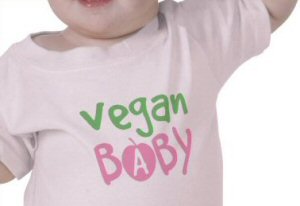 From birth to 6 months all of the baby's nutritional needs can be met through breast milk. The breast milk of vegan
women is refreshingly void of many toxins and pesticides that are found in the breast milk of meat-eating women. This
affords a vegan baby an even better chance for short and long term health.
From birth to 6 months all of the baby's nutritional needs can be met through breast milk. The breast milk of vegan
women is refreshingly void of many toxins and pesticides that are found in the breast milk of meat-eating women. This
affords a vegan baby an even better chance for short and long term health.
Feeding Vegan Infants
After about 4 months, your baby may not seem fully satisfied with milk alone, if this is the case you could start introducing some solid food in addition to the milk feeds. When your baby is ready to eat solids they will usually tell you by reaching for what you're eating or staring at your food.
The first foods any child eats are usually mashed fruits, soft veggies, and iron fortified rice cereals. Depending on how well your baby is taking solids, you can also try mashed beans, nut butters blended with fruit or vegetable purée and non-dairy yoghurt. All of these items are vegan so nothing special needs to be said for starting solids. Avoiding cow's milk and eggs are probably good advice for the first year of any child's life anyway. After that, simply give your vegan child samples of food from your own plate and see what he/she likes. One great way to get in some good fruits and veggies is by making green smoothies. Mix fruit and greens together in the blender with a little filtered water. These smoothies taste great and will give you and your baby perfect blends of nutrients. They are loaded with electrolyte minerals, which help to keep the body hydrated and aid in recovery from exercise.
Legumes, tofu, millet, quinoa, and wild or brown rice are good sources for carbohydrates and
proteins. Brewer's yeast, chlorella and
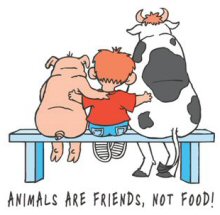 spirulina are very high in protein. It is also
good to keep in mind, that protein, in its amino acid components, is in pretty much every plant. If you give your baby enough calories from a variety of whole foods, you can be confident in knowing he/she is getting enough.
spirulina are very high in protein. It is also
good to keep in mind, that protein, in its amino acid components, is in pretty much every plant. If you give your baby enough calories from a variety of whole foods, you can be confident in knowing he/she is getting enough.
Avocados, olives, olive oil, flax oil, pumpkin seeds, walnuts and pure extra virgin unrefined coconut oil are some good fat sources. Higher amounts of fats are needed for babies than adults. As long as they are good sources your baby will benefit from them. A wide variety of fresh organic fruits and veggies provide ample amounts of carbohydrates, amino acids, minerals and vitamins.
Feeding Vegan Children
As your child gets older you can incorporate the things most kids enjoy eating. Below are some suggestions for
things most vegan children will enjoy and will ensure that he/she has a well balanced and varied diet:
- Spaghetti with tomato sauce
- Peanut butter and jam (jelly) sandwiches
- Chicken-style nuggets (soy or wheat protein nuggets)
- Oven baked french fries with ketchup
- Burgers, hot dogs and sandwich slices made of tofu and other meat substitutes
- Scrambled tofu
- Whole wheat bread/toast with non-dairy spread
- Grilled soya cheese sandwiches
- Mashed potatoes
- Veggie pizzas with soya cheese
- Oatmeal with apples and cinnamon
- Pancakes with pure maple syrup
- Waffles with fruit
- Barley/lentil and vegetable soup
- Romaine lettuce salad
- Vegetables, including green leafy and deep yellow vegetables
- Baked potato with broccoli and tofu sour cream (non-dairy)
- Rice and beans
- Vegetable stew and dumplings
- Spinach lasagna
- Calcium-fortified orange juice
- Calcium-fortified soya milk
- Iron-fortified cereal with calcium-fortified soy milk
Some important nutrients to support your vegan baby's optimal health are Vitamin B12, DHA and Vitamin D. These 3 are the
least easily acquired through a vegan diet. Don't hesitate to give a B12 supplement to your toddler if you are concerned they are not
getting enough from food.
Snacks:
- Fruits, cut up into bite sized pieces for children under 4
- Raisins
- Trail mix
- Applesauce
- Fresh berries and sorbet (all fruit without sugar)
- Fruit smoothies
- Popcorn
Extra Tips
- Infants need plenty of energy. Home-prepared cereals should be made as a thick porridge and not as a thin gruel. Add a little vegetable oil to the cooked grains to increase their calorie content, and improve palatability by making them less glutinous as they cool.
- Use more soya bean oil or rapeseed (canola) oil, and less sunflower, safflower or corn oils. The former may encourage the production of fatty acids that are important for the development of the brain and vision.
- Do not allow infants fill up with liquids before meal-times.
- Spread breads with margarine,seed or nut butters to increase calories.
- Low salt yeast extract is a good source of vitamins and minerals.
- Well-cooked and mashed pulses (e.g. lentils, mung beans and chick peas) provide energy and protein. Use black molasses to boost iron and calcium intakes.
- Tofu prepared with calcium salt (usually calcium sulphate) contains more calcium than cow's milk. It is also rich in protein.
- Make sure children have access to sunshine regularly and provide vitamin
D2 supplements in winter.
- Use non-dairy milks e.g. soya milk that is fortified with calcium, vitamin D2 and vitamin B12.
Handling School and Special Events
Family and friends may worry that your child will be ostracised at school if he brings tofu and sprouting veg. So
send your child to school with sandwiches filled with peanut butter and jam (jelly) or mock meat
slices, apple, carrots, fruit-sweetened cookies and baked potato crisps and no one will know your child is
eating a "special" diet. It's important that a vegan child not feel different just because their diet may not be shared by
those around them. At birthday parties, find out what the host is serving and drop your child off with the vegan
equivalent of those items. If you're having a party at home for your child then vegan food is great for everyone because it
automatically suits all allergy and religion restricted diets anyway! All kids love cake and there's lots of great
recipes on the Internet for wonderful vegan birthday cakes. Popular party foods are veggie-sausage rolls, shaped
sandwiches, corn chips, nuts, crisps, vegetable sticks with dips, fruit hedgehogs (grapes and cubes of fruit on cocktail
sticks, stuck into half an upturned melon), vegan yoghurts etc.
During holiday times it's wise to find vegan equivalents to favourite holiday treats so your child doesn't feel he/she is
missing out. For example, a vegan Easter basket can include vegan chocolate eggs and plastic eggs with coins in them. Christmas
is a great time for baking and decorating homemade cookies together. Halloween can be tough, but one idea is to get
together with other vegan parents and have a Halloween party. Let the kids dress up in costume and enjoy activities like
bobbing for apples. Serve vegan cupcakes and confections in the shapes of monsters, and carve pumpkins too. With a little
forethought and creativity, a vegan child can enjoy the same holidays non-vegan children do.
Learn!
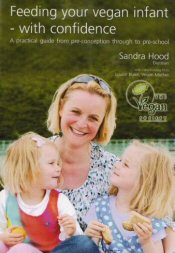 Learn all you can about vegan nutrition. As mentioned earlier, Dr.
Michael Klaper's 'Pregnancy, Children and the Vegan Diet' is a good book to show anyone who queries the wisdom of bringing
your children up as vegans. Dr. Benjamin Spock also advocates veganism for children in the last
edition of 'Baby and Child Care'. Another good book with lots of nutritional information is 'Becoming Vegan' by
registered dieticians, Brenda Davis and Vesanto Melina. 'Feeding Your Vegan Infant With Confidence' is another
great title from the Vegan Society.
Learn all you can about vegan nutrition. As mentioned earlier, Dr.
Michael Klaper's 'Pregnancy, Children and the Vegan Diet' is a good book to show anyone who queries the wisdom of bringing
your children up as vegans. Dr. Benjamin Spock also advocates veganism for children in the last
edition of 'Baby and Child Care'. Another good book with lots of nutritional information is 'Becoming Vegan' by
registered dieticians, Brenda Davis and Vesanto Melina. 'Feeding Your Vegan Infant With Confidence' is another
great title from the Vegan Society.
In Conclusion
Raising a vegan child is just as exciting, rewarding, and filled with challenges as raising any child. But providing your
child a vegan diet will give him an early start on leading a long and healthy life. Remember that in this
complicated, non-vegan world there are many situations that do not have a clear cut, perfect vegan solution
to them - do what you feel to be right and best and don't worry about what other people think.
References
www.keepkidshealthy.com
www.veganfamily.co.uk
www.vegansociety.com
www.naturalnews.com
Further Resources
Viva! Mother and Baby Guide: www.viva.org.uk/guides/motherandbaby.htm